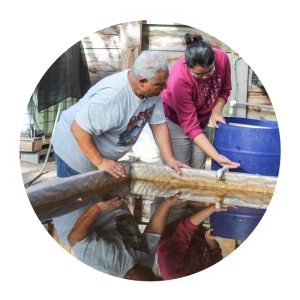SSD Seminars
2026 topics:
- Resource Stewardship
- Principles Of Worldview
- Sustainable Agriculture/Animal Husbandry
- Community Technology
- Renewable Energy Technologies
- Community Water Technologies
- Aquaponics Systems
- Community and Health Evangelism
***Cost per person, per week is $275 for a single seminar. For attendance at 2 or more weeks, the price per seminar week will be $250. (This includes one week on instruction with materials, food and housing)
The cost of all the seminars together is $2000 ***
You may apply by clicking on the link above, “APPLY NOW”. If you have problems with the online application, you may register for an SSD seminar by emailing us at jucumheredia@gmail.com with “SSD Seminar” in the subject line.
Please let us know your contact info: Name, Phone #, Email and which seminar you would like to register for.

Sustainable Agriculture/Animal Husbandry
Objective- Students will learn about the different techniques used in sustainable soil preparation, composting, planting, crop rotation, etc. Students will also learn how to deal with pests using organic pesticides. Other techniques covered will be double digging, Zai Holes and the use of IMO{s. Also, the students will learn how to incorporate domestic animals into the system for nitrogen inputs and as a source of dietary protein needed in developing communities. We will be talking about the feeding, breeding, and production of domestic animals. We will cover common disease, vaccine, and worming.
Water Technologies
Objective: The student will gain an understanding of water management and sanitation systems, and health issues relating to water and sanitation. We will also teach how to test the water and cover water purification techniques. Also, we will cover water-related disease and its prevention.
Participatory Education in Community Health Evangelism (with certificated awarded)
Community Health Evangelism (CHE) is a Christ-centered educational program that is being used by hundreds of Christian churches and organizations across the globe. CHE equips communities to identify issues and mobilize resources to achieve positive, sustainable change. Lives and communities are transformed as people come to Christ and work together to address local needs. Objetive: The student will learn how to do community assessment and bring about a choice and knowledge transfer, leadership skills for influencing change and community participatory transformation
Intro to Community Technology
Objective: The student will receive practical instruction in the construction of appropriate technology relating to environmental stewardship, covering storage and water collection areas, sand filters, sanitation, pumps and biodigesters, etc.
Sustainable Alternative Energy
Objetives: The student will learn about the advantages and disadvantage of three different types of alternative energy, solar, wind and water. This week also includes how to do an assessment to determine wich system is the most appropiate for the different ecosystems.
Aquaponics Systems
Objectives – Students will learn how to construct and maintain a functional Aquaponics system with the goal of producing food. They will learn how to select the proper species of fish, stocking ratios, and water testing to maintain balance and health in the fish population. We will also show them the advantages and disadvantages of growing plants in water and gravel mediums.
Resource Stewardship
Objectives – Introduce Biblical foundations of stewardship and creation care. The student should understand the concept of Earth keeping, God’s Sustaining Development, and Biblical Transformation.
Principles of Worldview and How Affects Development
Objectives – The student should understand worldview foundations; alternative worldviews with respect to stewardship of environment and resources; secular humanism, animism, new age spirituality, Evolution vs. Creation, “overpopulation”, open and closed systems, and the outworking of these concepts in history.
